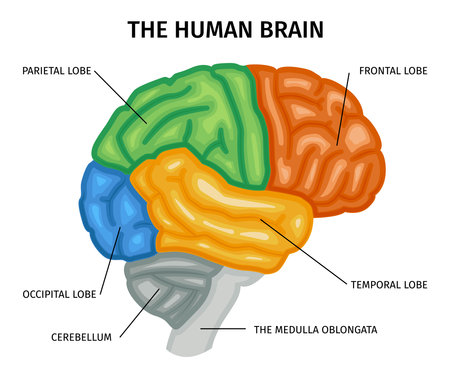Introduction to Depression and Anxiety in the UK
Depression and anxiety are significant public health concerns across the United Kingdom, shaping both individual lives and broader societal wellbeing. The prevalence of these mental health conditions has risen markedly over recent decades, with recent NHS statistics indicating that nearly one in four adults will experience a mental health problem at some point during their lives. While global trends show similar increases, Britain’s unique social landscape—including its diverse population, urban-rural divides, and distinct regional pressures—creates specific challenges and nuances in how depression and anxiety manifest and are addressed.
In British society, there remains a strong undercurrent of stoicism and the “stiff upper lip” mentality, which can contribute to underreporting and delayed help-seeking. The stigma attached to mental health issues, though gradually decreasing thanks to national awareness campaigns and advocacy from organisations such as Mind and Rethink Mental Illness, still lingers in certain communities and age groups. This cultural context influences not just the experience of depression and anxiety themselves but also how individuals engage with the healthcare system when seeking support.
The National Health Service (NHS) has made notable strides in recognising and treating mental health conditions. Nevertheless, waiting times for psychological therapies can be lengthy, particularly in more deprived or rural areas. Economic pressures, Brexit-related uncertainties, and the lingering impact of the COVID-19 pandemic have further compounded the mental health burden faced by many Britons. These factors underscore the importance of understanding how depression and anxiety interact with other aspects of healthcare—especially rehabilitation outcomes—within the specific context of the UK.
Understanding Rehabilitation in the UK
When exploring how depression and anxiety impact rehabilitation outcomes, it is vital to first understand the landscape of rehabilitation in the United Kingdom. The UK’s healthcare system, predominantly led by the NHS (National Health Service), delivers a structured pathway for rehabilitation that is both widely accessible and culturally unique. This system caters to a range of patient groups and is shaped by societal attitudes towards illness, recovery, and mental health.
NHS Rehabilitation Pathways
Rehabilitation within the NHS typically follows a multidisciplinary approach, involving physiotherapists, occupational therapists, psychologists, and specialist nurses. Patients can access services through GP referrals, hospital discharge plans, or community health teams. The pathways are designed to support individuals with various needs—from post-stroke recovery to musculoskeletal injuries and long-term neurological conditions.
| Pathway Type | Common Entry Point | Typical Patient Group |
|---|---|---|
| Acute Hospital Rehabilitation | Post-surgical/discharge from acute care | Stroke, trauma, severe injury |
| Community-Based Rehabilitation | GP referral/ongoing outpatient care | Elderly, chronic illness, progressive conditions |
| Mental Health Rehabilitation | Mental health team referral/self-referral | Severe depression, anxiety disorders, psychosis recovery |
Commonly Targeted Patient Groups
The NHS rehabilitation framework primarily targets individuals recovering from stroke, heart attacks, major surgeries, fractures, and those managing chronic illnesses such as multiple sclerosis or COPD. Increasingly, there is an emphasis on integrating mental health support within these programmes due to the recognised interplay between psychological wellbeing and physical recovery.
Cultural Attitudes Towards Recovery
British culture traditionally values resilience and independence—qualities often reflected in public expectations of rehabilitation outcomes. However, there has been a gradual shift towards more open conversations about mental health and its impact on physical recovery. While stigma around depression and anxiety still exists in some communities, national campaigns and NHS initiatives have fostered greater acceptance of holistic approaches to rehabilitation.
The Interplay Between System and Society
The effectiveness of rehabilitation in the UK is therefore influenced not just by clinical protocols but also by cultural attitudes toward illness and recovery. Patients who feel supported—both medically and psychologically—are more likely to engage fully in their rehabilitation journey. As awareness grows around the importance of mental health in physical recovery, healthcare professionals are increasingly encouraged to adopt integrated treatment models that address both mind and body.

3. How Depression Impacts Rehabilitation Outcomes
Depression is a major barrier to successful rehabilitation, particularly within the context of UK healthcare services such as the NHS. Individuals experiencing depression often struggle with motivation, energy levels, and self-belief—all of which are crucial for active participation in rehabilitation programmes. For example, a patient recovering from a stroke at a community-based physiotherapy service in Manchester may find it hard to attend regular sessions or complete exercises at home due to persistent feelings of hopelessness or fatigue. This lack of engagement not only slows physical progress but also undermines confidence in their own recovery journey.
Adherence to treatment plans is another significant challenge. Many UK-based studies highlight that patients with depressive symptoms are more likely to miss appointments or withdraw from structured rehabilitation entirely. In London’s cardiac rehab services, for instance, clinicians have observed that those struggling with low mood tend to drop out early or avoid group activities, fearing judgement or feeling overwhelmed by social interaction. Such patterns reduce the likelihood of achieving optimal outcomes and can even result in hospital readmissions.
Furthermore, depression can distort an individual’s perception of progress. Even when measurable improvements are made, people dealing with depression might dismiss their achievements or feel dissatisfied with their efforts. This negative outlook can be compounded by the pressures of waiting lists and resource limitations common in UK public health settings. Ultimately, recognising and addressing depression within rehabilitation is vital—without tailored psychological support, many individuals risk falling through the cracks and missing out on the full benefits of rehabilitation.
4. Influence of Anxiety on Rehabilitation Success
Anxiety is a significant psychological factor that directly influences rehabilitation outcomes in the United Kingdom. Its prevalence among patients undergoing physical or mental health rehabilitation cannot be underestimated, particularly in the NHS context where waiting times and uncertainties often add to existing stress. In this section, we will analyse how anxiety symptoms impact motivation, patient participation, and measurable outcomes during rehabilitation.
Impact on Motivation
Patients experiencing anxiety frequently report decreased motivation to engage in rehabilitation exercises and activities. The persistent worry about their prognosis or fear of pain can lead to avoidance behaviours, undermining therapeutic gains. Clinicians across the UK have observed that anxious patients are less likely to adhere to prescribed home exercise programmes, which are vital for recovery outside of clinical settings.
Effect on Patient Participation
The presence of anxiety symptoms often results in reduced active participation during therapy sessions. For instance, patients may be reluctant to attempt new tasks or challenge themselves physically due to fear of failure or injury. This is particularly true in group-based settings common within UK rehabilitation centres, where individuals with social anxiety may withdraw or remain passive.
Key Challenges Faced by Anxious Patients
| Challenge | Description | UK-Specific Considerations |
|---|---|---|
| Lack of Engagement | Avoiding scheduled sessions or not fully participating | NHS resource limitations may exacerbate missed opportunities for intervention |
| Negative Self-Perception | Believing recovery is unattainable due to personal inadequacy | Cultural stigma around mental health may prevent open discussion with clinicians |
| Fear of Social Judgement | Worrying about others perceptions in group therapy environments | Diverse patient populations and varying levels of social support across regions |
Influence on Outcome Measures
Anxiety has been shown to negatively affect both subjective and objective outcome measures used in UK rehabilitation settings. Patients with high anxiety levels often report lower satisfaction scores and slower improvement on standardised functional assessments such as the Barthel Index or EQ-5D. Moreover, ongoing anxiety can increase the likelihood of re-referral or delayed discharge, placing additional strain on already stretched NHS resources.
Personal Reflection: Navigating Anxiety During Recovery in the UK
From my experience working alongside multidisciplinary teams across England and Scotland, I’ve seen first-hand how early recognition and targeted management of anxiety can dramatically improve rehabilitation engagement. Collaborative approaches involving psychologists and physiotherapists can help break down barriers and empower patients to take an active role in their own recovery journey.
5. Interplay Between Mental Health and Physical Recovery
The relationship between mental health and physical recovery is profoundly intertwined, particularly in the context of rehabilitation within the United Kingdom. When individuals face both depression and anxiety alongside physical injuries or chronic illnesses, the journey to full recovery can become far more complex. This mind-body connection is not just theoretical; it’s a reality regularly observed in NHS clinics, physiotherapy sessions, and community-based rehabilitation programmes across the country.
The Vicious Cycle: How Mental Health Compounds Physical Recovery
Depression and anxiety can act as invisible barriers that hinder progress in physical rehabilitation. For instance, low mood or persistent worry may sap motivation, making it difficult for patients to engage fully with prescribed exercises or attend regular appointments. Fatigue, sleep disturbances, and poor concentration—common symptoms of these mental health conditions—can further diminish a person’s ability to participate actively in their own recovery process. In some cases, this leads to missed sessions, reduced compliance with treatment plans, and ultimately slower physical improvement.
Real-World Impact: Delays and Complications
British healthcare professionals often witness how co-existing mental health issues can prolong hospital stays or increase the likelihood of complications. A patient recovering from surgery who also struggles with anxiety might experience heightened pain perception or delayed wound healing due to increased stress hormones. Similarly, someone with depression may neglect self-care routines essential for preventing secondary infections or falls at home. This interplay makes clear that addressing mental health is not optional but essential for effective rehabilitation outcomes.
A Holistic Approach: Integrating Mental and Physical Care
Recognising this dynamic, many UK rehab services are now adopting more holistic models of care. Multidisciplinary teams—including psychologists, occupational therapists, and nurses—work together to create tailored support plans that address both mental and physical needs. Cognitive behavioural therapy (CBT), mindfulness practices, and peer support groups are increasingly integrated into rehab pathways to help patients manage emotional distress while rebuilding their bodies. This collaborative approach reflects a growing understanding that true recovery requires nurturing both mind and body—a principle that’s reshaping rehabilitation practice across Britain.
6. Cultural and Systemic Barriers in the UK
When considering the impact of depression and anxiety on rehabilitation outcomes in the United Kingdom, it is essential to recognise the unique cultural and systemic barriers that shape patient experiences. These obstacles are deeply embedded in British society and influence how individuals perceive mental health and access support during their rehabilitation journeys.
Stigma Surrounding Mental Health
Despite ongoing campaigns to promote openness, there remains a persistent stigma around mental health in the UK. Many individuals still feel uncomfortable disclosing symptoms of depression or anxiety, fearing judgement or discrimination from peers, employers, or even healthcare providers. This reluctance can significantly delay help-seeking behaviour, resulting in untreated mental health issues that hinder rehabilitation progress. The classic British “stiff upper lip” mentality often encourages people to suppress emotions, further compounding these challenges.
Funding Limitations
The NHS has made significant strides towards integrating mental health into mainstream healthcare; however, funding constraints remain a critical barrier. Resources for mental health services are often limited compared to physical health provisions, leading to long waiting times for psychological therapies and inconsistent availability across regions. For those undergoing rehabilitation, this can mean insufficient access to timely psychological support, which is vital for addressing co-morbid depression or anxiety and optimising recovery outcomes.
Access to Integrated Care
Integrated care models—where physical and mental health needs are addressed holistically—are gaining traction in the UK but are not yet universally available. Fragmentation between services can result in patients falling through the cracks, especially those with complex needs requiring multidisciplinary support. Without seamless coordination between physiotherapists, psychologists, and other specialists, individuals may struggle to navigate the system, leading to poorer engagement and suboptimal rehabilitation outcomes.
The Impact on Rehabilitation Outcomes
Together, these cultural and systemic barriers create an environment where individuals with depression or anxiety face additional hurdles in their recovery journeys. Stigma discourages open discussion; funding shortages restrict access to necessary services; fragmented care pathways make it difficult to address all aspects of a patient’s well-being. Addressing these barriers requires not only policy changes but also a shift in public attitudes—a collective commitment to valuing mental health as integral to overall recovery and quality of life.
7. Recommendations for Improved Rehabilitation Outcomes
Practical Strategies for Clinicians and Healthcare Teams
Effective rehabilitation in the UK must address not just the physical, but also the psychological needs of patients. Clinicians should routinely screen for symptoms of depression and anxiety at initial assessment and throughout the rehabilitation journey. Incorporating mental health professionals into multidisciplinary teams can ensure that emotional wellbeing is prioritised alongside physical recovery. Cognitive behavioural therapy (CBT) sessions, mindfulness-based interventions, and motivational interviewing are all evidence-backed approaches that could be integrated into standard care pathways to boost engagement and adherence.
Policy Suggestions for the NHS and Local Authorities
At a policy level, the NHS could benefit from developing guidelines that specifically outline how to support individuals with comorbid depression or anxiety during rehabilitation. Allocating funding for mental health training programmes aimed at physiotherapists, occupational therapists, and other allied health professionals would build confidence and competence in managing these complex cases. Furthermore, commissioning community-based psychological support services would help to bridge gaps between hospital discharge and long-term community rehabilitation, ensuring continuity of care.
Enhancing Accessibility and Reducing Stigma
Improving access to mental health support is crucial, particularly in rural areas or among socially disadvantaged groups. The UK could expand tele-rehabilitation services that include virtual psychological support, making it easier for those who struggle with mobility or transport to receive care. Campaigns to reduce stigma around mental health—especially within clinical settings—would encourage more patients to disclose their struggles, leading to earlier intervention and better outcomes.
Collaboration Between Sectors
Lastly, cross-sector collaboration between healthcare providers, social care services, charities, and patient advocacy groups can foster innovative solutions tailored to the needs of people living with depression or anxiety. Shared resources such as peer support networks or local wellbeing hubs could provide ongoing encouragement throughout the rehabilitation process. By implementing these practical strategies and policy suggestions, the UK can make meaningful progress towards closing the gap in rehabilitation outcomes for individuals affected by depression and anxiety.


